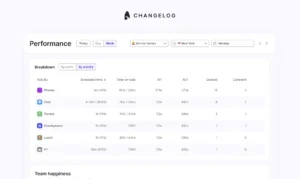
We’re removing jargon (from everything)

We are building a product that makes planning a customer service team simple, accurate and fair. To do this, we need to say things exactly how they are. This means no jargon.
Service level agreement (SLA) is an example of jargon that could be explained better with basic words. We’re now calling it target response time. The same applies to service level. Service level refers to the % of tickets responded to within SLA. We’re saying goodbye to that mouthful and changing it to tickets on time. “Workforce management” was never in our repertoire because we are building for teams, not workforces.
We’re investing a lot of data science and engineering time into building an accurate product that manages a customer service team in real time. This means we have also made a decision to be very careful to not let technical jargon slip into our product or how we communicate. The psychologist Steven Pinker coined the phrase “the curse of knowledge” to describe the phenomenon of when someone is more expert something technical, they are less able to communicate what they know effectively:
“The curse of knowledge is the single best explanation I know of why good people write bad prose. It simply doesn’t occur to the writer that her readers don’t know what she knows — that they haven’t mastered the patois of her guild, can’t divine the missing steps that seem too obvious to mention, have no way to visualize a scene that to her is as clear as day. And so she doesn’t bother to explain the jargon, or spell out the logic, or supply the necessary detail.“
We’re fighting the curse of knowledge. We’re confidently building accurate models and fair schedules. This takes a lot of work behind the scenes. The most value we can deliver is by simplifying this and making it accessible for anyone to use.



